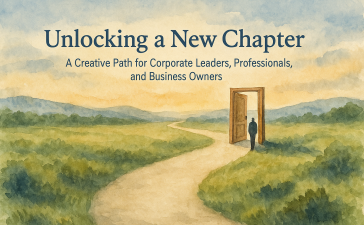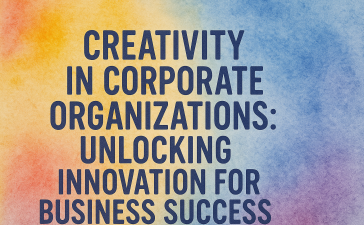In the competitive world of art licensing, many emerging artists and designers dream of landing big deals with major brands right out of the gate. However, the reality is that success in this industry often comes through a series of small victories rather than one monumental breakthrough. This article explores why embracing smaller opportunities is crucial for building credibility and ultimately achieving larger successes in the art licensing journey.
The Importance of Starting Small
When you’re just starting out in art licensing, it’s natural to aspire to work with big-name brands and secure lucrative contracts. However, waiting for these opportunities can lead to prolonged periods of inactivity and missed chances for growth. Instead, consider the value of smaller deals and collaborations:
- Building a Track Record: Every successful collaboration, no matter how small, adds to your professional portfolio. This track record demonstrates to potential licensees that you’re experienced in working within the industry.
- Learning the Ropes: Smaller projects allow you to familiarize yourself with the licensing process, contracts, and industry expectations without the pressure of a high-stakes deal.
- Developing Relationships: Working with smaller brands or companies helps you build a network within the industry. These connections can lead to referrals and future opportunities.
- Gaining Market Exposure: Even limited product releases get your art in front of consumers, helping to build recognition for your brand.
The Myth of Guaranteed Success
It’s crucial to understand that in the licensing industry, there are no guarantees. A deal that looks promising on paper may not always translate into substantial royalties. Factors beyond your control, such as market trends, economic conditions, or the licensee’s marketing efforts, can all impact the success of a licensed product.
This uncertainty applies to deals of all sizes. No one can predict with absolute certainty which collaboration will lead to a significant payday. Therefore, it’s unwise to dismiss smaller opportunities in favor of waiting for a “sure thing” – because in reality, there’s no such thing.
Credibility: The Currency of Licensing
In the licensing industry, credibility is everything. Big brands and companies are more likely to collaborate with artists and designers who have proven themselves in the market. This is where the value of small deals truly shines:
- Proof of Concept: Successfully licensed products, even on a small scale, demonstrate that your art has commercial appeal.
- Industry Experience: Each deal, regardless of size, shows that you understand how to work within the licensing framework.
- Adaptability: Working with various companies on different product types showcases your versatility as an artist.
- Professional Reputation: Consistently delivering quality work and meeting deadlines builds a positive reputation in the industry.
By accumulating these small wins, you’re not just adding lines to your resume – you’re building a narrative of reliability and success that makes you increasingly attractive to larger brands.
The Artist’s Role in Promotion
One common misconception among new artists and designers is that their jobs end once the contract is signed. In reality, the launch of a licensed product is just the beginning of a new phase of work. Your active involvement in promotion is crucial for several reasons:
- Mutual Benefit: The success of the licensed product benefits both you and the licensee. Your promotional efforts can significantly impact sales.
- Brand Building: Actively promoting licensed products helps build your personal brand and increases recognition among consumers and industry professionals.
- Demonstration of Commitment: Your promotional efforts show future potential licensees that you’re invested in the success of collaborations.
- Learning Opportunity: Engaging in promotion helps you understand your audience better and can inform future artistic decisions.
Practical steps for promotion might include:
- Sharing product launches on your social media platforms
- Creating behind-the-scenes content about your creative process
- Engaging with customers who purchase products featuring your art
- Collaborating with the licensee on marketing initiatives
Leveraging Small Deals for Bigger Opportunities
Each small deal or collaboration is a stepping stone towards larger opportunities. Here’s how to make the most of these experiences:
- Document Everything: Keep a detailed portfolio of all your licensed products, including sales figures if available.
- Tell Your Story: Use your experiences with smaller brands to craft a compelling narrative about your growth as an artist and collaborator.
- Network Strategically: Use your connections from smaller deals to get introductions to larger companies or licensing agents.
- Learn and Improve: Analyze the performance of each licensed product to understand what works in the market and refine your approach.
- Stay Visible: Consistently share your licensing successes, no matter how small, to keep your name in the industry conversation.
The Win-Win Scenario
Embracing smaller licensing opportunities creates a win-win scenario for all parties involved:
- For Artists: You gain experience, build credibility, and create a foundation for larger future deals.
- For Small Companies: They get to work with fresh talent and potentially discover the next big name in art licensing.
- For Big Brands: They can observe your track record and professional growth, reducing their risk when they eventually collaborate with you.
- For Consumers: They get access to diverse art on various products, enriching their choices in the marketplace.
Conclusion
In the art licensing industry, success is rarely an overnight phenomenon. It’s built through a series of small wins, each contributing to your credibility, experience, and industry relationships. By embracing smaller opportunities, actively participating in the promotion of licensed products, and leveraging each experience for growth, you create a solid foundation for bigger deals in the future.
Remember, every big name in the industry started somewhere. Your willingness to start small, work hard, and persist through challenges can set you on the path to becoming the next success story in art licensing. So, don’t wait for the perfect big deal – start building your licensing career one small win at a time.
- Find out more
- Launch Pad + Accelerator Expressions of Interest
- Selling and Licensing Your Art & Designs Around the World with ArtSHINE.
- Looking for exciting new Art and Designs to license.
We’re here to help you to take action, just like we’ve helped thousands of other entrepreneurs, business owners, and creative professionals all around the globe.
Now is the time to let your passion SHINE.
Now is the time to Make Tomorrow Today!
To your success, Vinh Van Lam and Stuart Horrex Cofounders ArtSHINE.com





